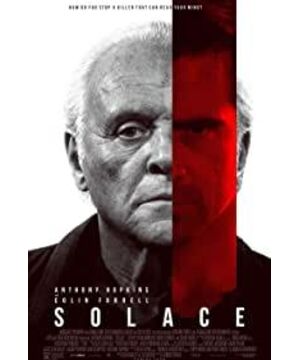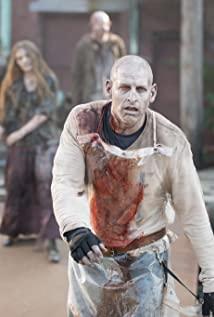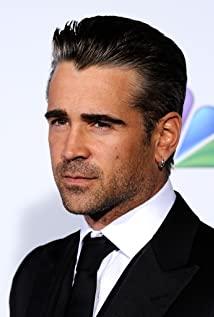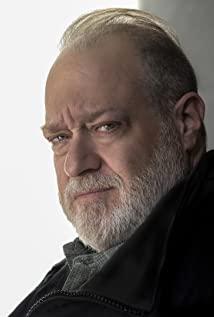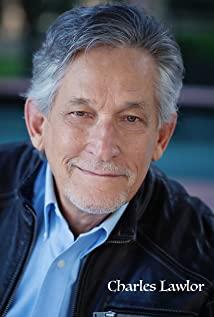However, this is related to the theme of the film. There is no mess, no night, rain and chaotic rooms in crime movies? Looking at it, I understand that this is actually a warmth and healing film.
There are two psychics in it, John, an old man, who has perfected his daughter with terminal cancer, then divorced his wife, lived in seclusion, and lived in painful thoughts of his daughter. He is a little bit cynical and a little see through the world, but he is not so extreme. Unlike another psychic, a serial killer, who can't stand the painful lives of others, he intends to fulfill them and becomes a confident killer who implements euthanasia.
But one day, he couldn't stand it anymore. He wanted to die, but he had to find an heir. He saw Old Man John, his own kind. He knows that the other party is not so philanthropic, but not so radical, so he designed a paradox scenario where he must kill someone, kill himself or kill the policewoman, he has killed everyone, and may start to inherit his great cause from then on. The film is not set here as a scene where good and evil are opposed. The self-sacrifice of the serial killer is greater than the meaning of being hunted and killed. In the end, the old John did not kill the serial killer, but was forced to kill him. This killing method means completely different.
The killing of evil is the killing of a serial killer, and the killing of salvation is the killing of Old John. The difference between the two psychics is that one is the killing of evil and the other is the killing of salvation. One is to get in touch with the evil of suffering, and the other is to save the good of happiness.
Channeling is actually the suffering of mankind in the past and in the future. On the surface of people's quiet life, you can see their inner pain, and under the strong appearance, you can see their tragic fate. But psychic people do not have the power to live and kill. They can take pity and not speak out, instead of offering wine and ice cream like a serial killer, and then being happily sent to the west.
The focus of both parties is on the fate of the policewoman. When John saw the policewoman's past, he thought of his daughter. This is a tragic fate, and there is a danger of death. He accepted his friend's request, re-entered the arena, and started to get out of the predicament little by little in the midst of half pushing. But at first he was not too pitiful, "Who cares?" When he saw through the policewoman's past and told her about her suffering, he comforted her. But then his good friend the policeman died, and died peacefully. Although he knew that he didn't have much time left, he still worked for his wife and children. He died in an advanced stage of cancer without suffering, which was completely different from the situation of his daughter at the time.
The serial killer revealed the extreme side of his indifferent expression little by little, and went further in the place where he was cold to the suffering of the world, and ended their destiny. The serial killer talked to him and tried to persuade him, but he kept apologizing to the policewoman and felt that he hurt her. The implication is that although you are in pain, you are still worthy of respect. I still care about you very much. Like the serial killer, because you are depressed, anxious, and attempted suicide will help you relieve yourself.
At the last moment, he chose to kill the serial killer and save the policewoman on the edge of pain. He chose forgiveness and comfort instead of despair. He did not deprive human beings of the right to live in pain, but put life in his own hands.
He knocked the trigger and killed the serial killer. The scene of him helping his daughter to euthanize suddenly appeared many years ago, but this is not to say that he inherited the mantle of a serial killer, but that he was relieved. His daughter begged him to end his life, and he did it. It was not evil. At the moment of killing her, his fatherly love still existed. He shouldn't feel guilty for this all his life, shouldn't stay away from the world, have no hope of life, and reject the life outside the window. Life is life and death, even in pain, we should not give up life, but if we really want to end life, we must be cautious and not make decisions for others.
The serial killer, behind his so-called compassionate heart, is actually a desperate heart, suffering has crushed him, and killing is not saving but liberation for him. According to his logic, maybe in the end, everyone should die euthanasia in the last lie he carefully arranged. Because no one lives in pain, in his psychic ability, everyone has a painful past and a future.
The old man John saved the policewoman, which was redemption for both parties. The old man found his wife again, and he was relieved, no longer struggling with the choice to end his daughter's life. He knows that where there is love, there is death, and to accept death is to accept love.
Perhaps the theme of the film is still not prominent enough. The female policeman may need to be more cruel. By handling the case to avenge her, vent his anger in the justice, a lively abandoned woman avenger, while the male policeman can be more gentle and fatherly. I feel that by comparing the two, we can see the two choices people have in pain. And John’s cold eyes, because he still apologizes for his daughter, and the desperate game of the serial killer, because he is desperate for life, the contrast between these two psychic characters is not strong enough. In this way, the meaning of contrast may not be very strong, and the audience may be groggy and confused by the montage of the film.
The film is always entangled in the death of the policewoman. The image of a policewoman bleeding from the head is the core image of all nightmares in the film. Whether the policewoman should die or whether she will die is the core clue of the film's structure. Perhaps it was the father's love for his dead daughter. This kind of love transcended death and gave him a little hope for humanity. As for the serial killer, he thought his final sacrifice was the sacrifice of Jesus. As everyone knows, the God of Christianity is a God of suffering, not a God who advocates suicide and euthanasia.
Of course, the film’s attitude towards euthanasia is complicated. The film strongly opposes the murderous euthanasia of serial killers that can perfect others. The old man John’s father-like euthanasia for his daughter also takes his father’s life to finally let go. The movie will only truly relieve him after the old man’s sacrifice of blocking bullets for the policewoman. His spirit of sacrifice made up for the cruelty of euthanasia.
Euthanasia not only ends a person's life, but also ends part of the life of the person who euthanized. The serial killer did not have such a concern for the deceased. His prophecy only made him despise all human beings and despise all happiness.
The radical young psychic was finally defeated by the kind and vicissitudes of life old man.
I don’t know when the Chinese have formed a certain prejudice against Hollywood. Whenever an American movie is released, it is considered blockbuster, sci-fi, violent, racing, magical and so on. As soon as China Film saw that the domestic audience was happy, and was happy to see it, it imported large quantities of blockbuster films, feature films, and art films. In the end, the Chinese also became keen on making blockbuster films, and the whole country was intoxicated by the box office of blockbuster films. Talking about Hollywood is basically talking about the box office.
So suddenly there was an alternative movie, and everyone thought, playing ball, why is it so boring. Super Parker, Transcendental Hacker, although it is also a science fiction, it is more like a literary film. Even if there are stars to help out, it is not pleasing. It is only the stars that make everyone go to watch. The plot is almost ignored, but some are not optimistic. The blockbuster films are popular among Chinese first- and second-tier and even small town youths, such as the Pacific Rim, Godzilla and so on.
View more about Solace reviews


